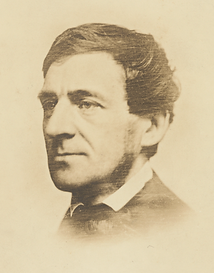The Dangers of Passion
When Margaret Fuller met Ralph Waldo Emerson in 1835, he was on the verge of declaring America’s spiritual, literary and philosophical independence, founding the school of American self-reliance.
Fuller was an ideal disciple for Emerson, as she had been raised by progressive parents who schooled her in Greek and Latin. By the time she met Emerson, she was translating Eckermann’s Conversations with Goethe, at the forefront of American intellectual circles.
Fuller found an ideal mentor and guide in Emerson. As their friendship deepened, Fuller ultimately pressed Emerson to recognize her unique role in his intellectual life. Emerson could not do this, but in their journals, each of them questioned the value of marriage for men and women of genius.
Disappointed by Emerson, Fuller ultimately had a child and married a barely-literate Count in Rome during the Italian Revolution in 1848, but this radical tie did not get to flourish. She and Ossoli and their child died in a shipwreck returning to America in 1850. But the questions Fuller’s life had raised—about how to reconcile marriage and self-reliance—are still echoing today, in the tension between self-reliance and commitment.


“The Dangers of Passion is a physically beautiful volume, and the contents are worthy of it, a provocative exploration of an adventurous friendship in which one social rebel challenges another.”
— Bell Gale Chevigny, author of Margaret Fuller: The Woman and the Myth, and Doing Time: 25 Years of Prison Writing.
“What a remarkable story—absolutely solid and gracefully written…this story really does justice to a complex relationship.”
— Ann Woodlief, Curator, American Transcendentalism Web, Emeritus Associate Professor, Virginia Commonwealth University
“I was delighted with The Dangers of Passion—it’s a sensitive, insightful, and well-written account of an important personal relationship between two major figures in American thought and letters.”
— Len Gougeon, former President, The Ralph Waldo Emerson Society, author of Emerson & Eros: The Making of a Cultural Hero.



